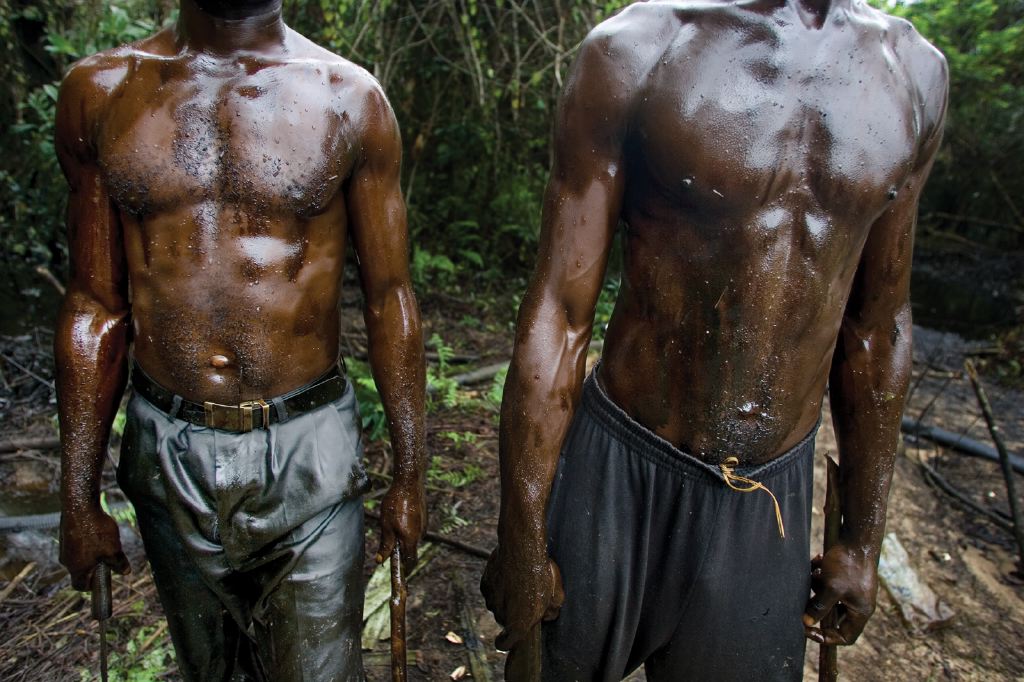I didn’t have time write about this when the relevant cable first came out, but I was reminded by a CBS roundup of “How WikiLeaks Enlightened us in 2010” to go back and take a look. It’s disturbing but not particularly surprising to longtime observers and critics. Royal Dutch Shell has essentially become, according to the company itself, the industrial octopus inside Nigeria’s government, even in the “democratic” era:
Cables from Nigeria show how Ann Pickard, then Shell’s vice-president for sub-Saharan Africa, sought to share intelligence with the US government on militant activity and business competition in the contested Niger Delta – and how, with some prescience, she seemed reluctant to open up because of a suspicion the US government was “leaky”.
But that did not prevent Pickard disclosing the company’s reach into the Nigerian government when she met US ambassador Robin Renee Sanders, as recorded in a confidential memo from the US embassy in Abuja on 20 October 2009.
At the meeting, Pickard related how the company had obtained a letter showing that the Nigerian government had invited bids for oil concessions from China. She said the minister of state for petroleum resources, Odein Ajumogobia, had denied the letter had been sent but Shell knew similar correspondence had taken place with China and Russia.
The ambassador reported: “She said the GON [government of Nigeria] had forgotten that Shell had seconded people to all the relevant ministries and that Shell consequently had access to everything that was being done in those ministries.”
What are some of the consequences of this level of control in Nigeria by an oil company? Here’s what I looked at back in June, for example:
How much is being spilled or is leaking? Well, right now there are about 300 incidents a year, and that has added up over the decades.
One report, compiled by WWF UK, the World Conservation Union and representatives from the Nigerian federal government and the Nigerian Conservation Foundation, calculated in 2006 that up to 1.5m tons of oil – 50 times the pollution unleashed in the Exxon Valdez tanker disaster in Alaska – has been spilled in the delta over the past half century. Last year Amnesty calculated that the equivalent of at least 9m barrels of oil was spilled and accused the oil companies of a human rights outrage.
According to Nigerian federal government figures, there were more than 7,000 spills between 1970 and 2000, and there are 2,000 official major spillages sites, many going back decades, with thousands of smaller ones still waiting to be cleared up. More than 1,000 spill cases have been filed against Shell alone.
Last month Shell admitted to spilling 14,000 tonnes of oil in 2009. The majority, said the company, was lost through two incidents – one in which the company claims that thieves damaged a wellhead at its Odidi field and another where militants bombed the Trans Escravos pipeline.[…]
Caption: An oil spill from an abandoned Shell Petroleum Development Company well in Oloibiri, Niger Delta. Wellhead 14 was closed in 1977 but has been leaking for years, and in June of 2004 it finally released an oil spill of over 20,000 barrels of crude. Above: Workers subcontracted by Shell Oil Company clean it up. | photo & caption by Ed Kashi, via citisven
Nigeria is now America’s third-largest oil supplier, even beating Saudi Arabia, from which we get about 40% of our oil. It’s time to do something about this.
This post originally appeared on Starboard Broadside.



